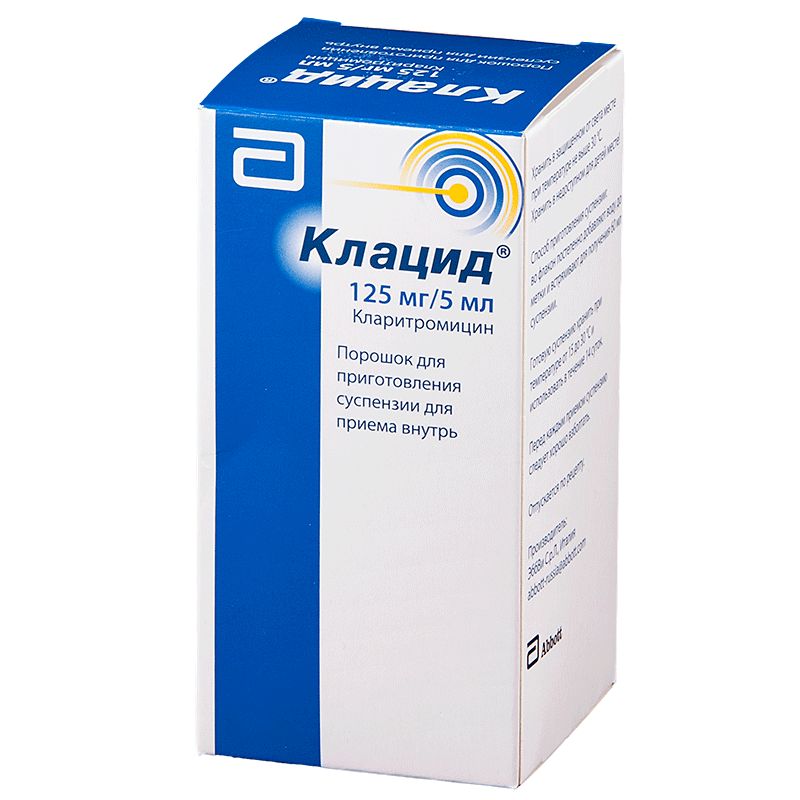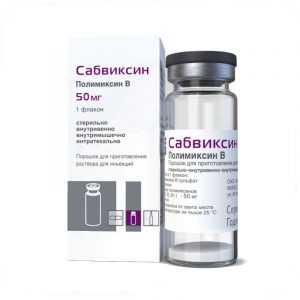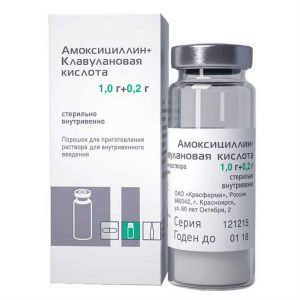Description
Description
Powder for preparation of a suspension for oral administration of white or almost white color, granular, with a fruity aroma when shaken with water, an opaque suspension of white or almost white color, with a fruity aroma.
Indications
Infectious and inflammatory diseases caused by microorganisms sensitive to the drug: – upper respiratory tract infections (pharyngitis, tonsillitis and sinusitis) – lower respiratory tract infections (bronchitis, pneumonia) – otitis media – skin and soft tissue infections (impeto , folliculitis, cellulitis, abscesses) – disseminated or localized mycobacterial infections caused by Mycobacterium avium or Mycobacterium intracellulare – localized infections caused by Mycobacterium fortuitum, Mycobacterium kansasii, Mycobacterium chelona e.
Contraindications
– severe renal impairment (with CC less than 30 ml / min), quick-release clarithromycin is prescribed for such patients – simultaneous administration of astemizole, cisapride, pimozide, terfenadine – porphyria – pregnancy – lactation (breast-feeding antibiotic sensitivity – increased) macrolides.
Recommendations for use
Ready suspension should be taken orally, regardless of food intake (can be with milk). To prepare the suspension, water is gradually added to the vial with granules to the mark, then the vial is shaken. The finished suspension can be stored for 14 days at room temperature. The recommended daily dose of clarithromycin suspension for non-mycobacterial infections in children is 7.5 mg / kg 2 times / day. The maximum dose is 500 mg 2 times / day. The usual duration of treatment is 5-7 days, depending on the pathogen and the severity of the patient’s condition. Before each use, shake the vial with the drug well.
Special instructions
Use the drug with caution in patients with impaired liver function. Perhaps the development of cross-resistance between Klacid and lincomycin and clindamycin.
Composition
5 ml of finished suspension. clarithromycin 250 mg Excipients: carbomer (carbopol 974P) – 150 mg, povidone K90 – 35 mg, hypromellose phthalate – 304.2 mg, castor oil – 32.1 mg, silicon dioxide – 10 mg, maltodextrin – 238.7 mg, sucrose – 2276.2 mg, titanium dioxide – 35.7 mg, xanthan gum – 3.8 mg, fruit flavoring – 35.7 mg, potassium sorbate – 20 mg, citric acid – 4.24 mg.
Side effects of
Oral administration of a suspension of Klacid can very rarely be accompanied by symptoms characteristic of clarithromycin: distortion of taste, gastrointestinal function disorders (dyspepsia, nausea, vomiting, diarrhea), increased levels of liver enzymes headache, vertigo, anxiety, sleeplessness nightmares, tinnitus in rare cases, disorientation, hallucinations, psychosis, depersonalization, confusion, thrombocytopenia in isolated cases are possible – hearing loss that occurs after cancellation the drug.
Drug Interactions
The simultaneous administration of Klacid with cisapride, pimozide and terfenadine is prohibited. Perhaps the development of cross-resistance between Klacid and lincomycin and clindamycin. With caution, Klacid is prescribed simultaneously with lovastatin, simvastatin and other HMG-CoA reductase inhibitors. With the simultaneous administration of Clacid with drugs that metabolize the cytochrome P450 (warfarin, ergot alkaloids, disopyramides, lovastatin, midazolam, rifabutin, triazolam, phenytoin, cyclosporine), there is an increase in the concentration of the latter in blood serum. With the simultaneous use of Klacid with digoxin, theophylline and carbamazepine, an increase in the content of the latter in blood serum was noted.
Overdose
Symptoms: nausea, vomiting, diarrhea. Treatment: gastric lavage, symptomatic therapy.
Storage conditions
The drug should be stored at room temperature (not higher than 30 ° C).
Deystvuyuschee substances
clarithromycin
Terms and conditions
prescription
Dosage
suspension Siya for oral administration
Appointment
Children by doctor’s appointment
Indications
From tonsillitis, From sore throat, From respiratory tract infections, Colds, From feces sinusitis, From gastric and 12-duodenal ulcer, From pharyngitis, From skin infections



